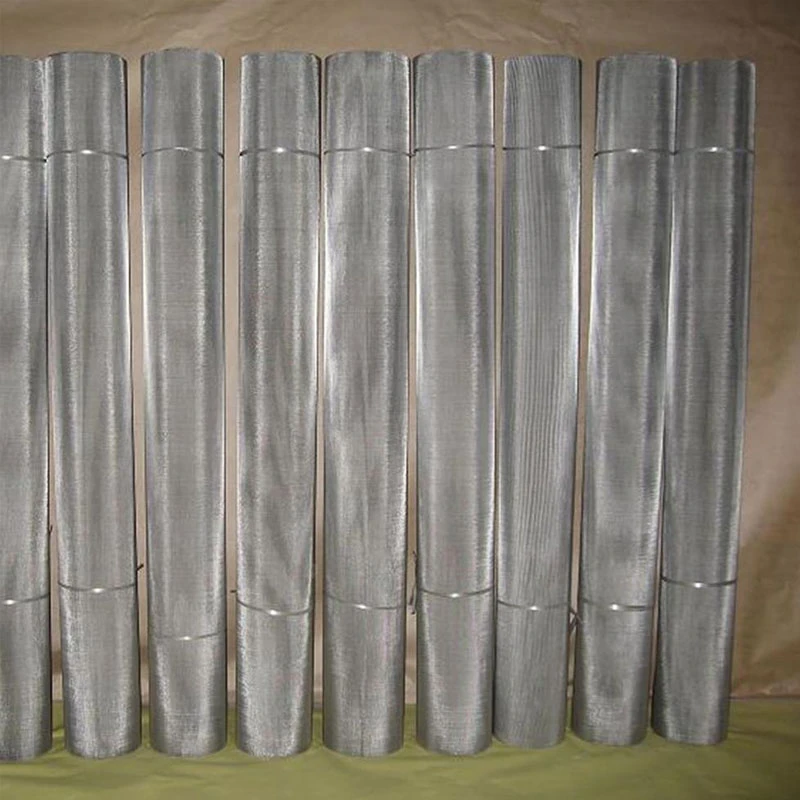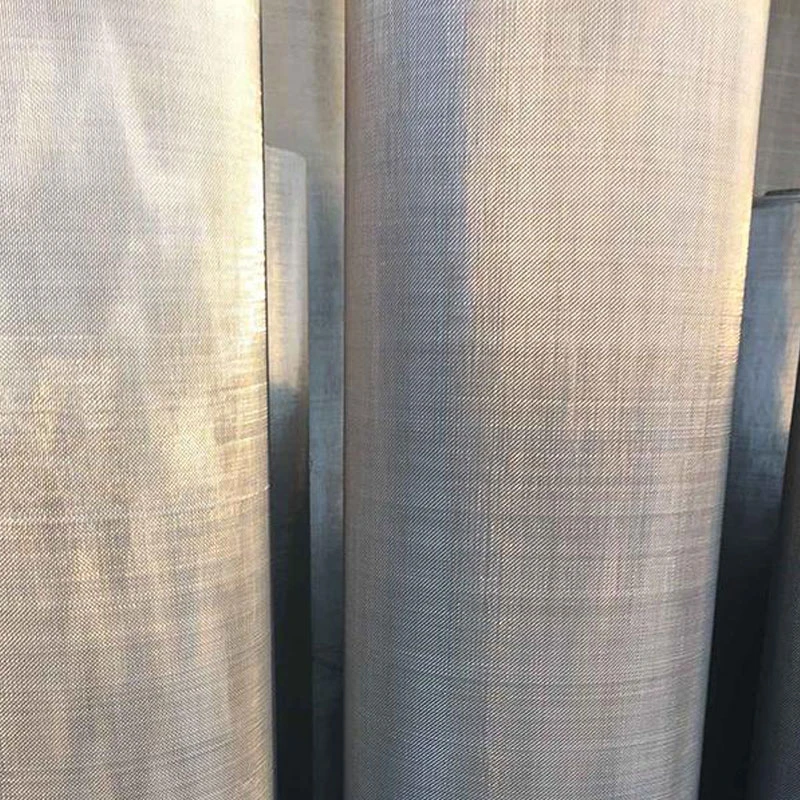Global Leader in Premium Stainless Steel Solutions



Premium Stainless Steel Window Screen Solutions
Stainless steel insect screen, commonly known as Stainless Steel Window Screen, represents the pinnacle of window protection technology. Manufactured from premium-grade stainless steel wire, our screens offer unmatched durability and long-lasting performance that outperforms conventional fiberglass or aluminum alternatives.
At Shijiazhuang Yajiada Metal Products Co., Ltd., we specialize in engineering Stainless Steel Window Screens that withstand extreme environmental conditions while maintaining optimal visibility and airflow. With corrosion resistance that lasts decades and incredible tensile strength, our products are revolutionizing window protection in both residential and commercial applications.
Industry leaders increasingly recommend Stainless Steel Window Screens as the premier solution for pest control without compromising visibility. The architectural sector has noted a 47% increase in Stainless Steel Window Screen specifications for new construction projects in the last three years according to the Global Building Materials Review.
Industry Trends and Advancements
The global market for Stainless Steel Window Screens is projected to reach $2.8 billion by 2028, growing at a CAGR of 6.7% according to Transparency Market Research. This substantial growth is fueled by increasing awareness of insect-borne diseases, demand for low-maintenance building materials, and architectural trends favoring durable metallic finishes.
Technological innovations have transformed Stainless Steel Window Screen manufacturing, including:
- Advanced weaving techniques achieving tighter meshes while maintaining airflow
- Enhanced corrosion-resistant alloys for coastal applications
- UV-stabilized coatings preventing solar degradation
- Custom fabrication systems for specialty architectural applications
Recent studies published in the Journal of Architectural Engineering demonstrate that premium Stainless Steel Window Screens provide superior performance in hurricane-prone regions, resisting wind pressures exceeding 150 mph while conventional screens fail at 80 mph. The non-combustible properties of Stainless Steel Window Screens also contribute to improved building safety standards globally.
Technical Specifications: Stainless Steel Window Screen
Our Stainless Steel Window Screens meet and exceed international quality standards. Below are detailed specifications:
| Parameter | Standard Range | Premium Options | Testing Standards |
|---|---|---|---|
| Material Grade | SS 304 | SS 316/L, SS 316Ti | ASTM A240, EN 10088-2 |
| Wire Diameter | 0.18mm - 0.25mm | 0.15mm - 0.30mm | ISO 6892-1 |
| Mesh Count | 18×16 / 20×20 | Up to 30×30 | ISO 9044 |
| Tensile Strength | 500-700 MPa | 700-900 MPa | ASTM E8 |
| Opening Size | 0.8mm x 0.8mm | 0.6mm x 0.6mm | ISO 4782 |
| Corrosion Resistance | Salt spray 500h | Salt spray 1000h+ | ASTM B117 |
| Color Options | Silver metallic | Charcoal, Bronze, Black | RAL/ASTM D3359 |
| Operational Temp | -40°C to 150°C | -70°C to 200°C | ASTM E741 |
Performance Data Visualization
Professional Applications of Stainless Steel Window Screens
Stainless Steel Window Screens provide unparalleled solutions across diverse environments:
Residential Excellence
Premium homes increasingly specify Stainless Steel Window Screens as a permanent solution that withstands decades of use. Unlike conventional screens that require replacement every 3-5 years, our products maintain structural integrity and aesthetic appeal for 15+ years in normal conditions. The non-corrosive properties make them especially valuable in coastal environments where salt air quickly destroys lesser materials.
Commercial and Hospitality
Hotels and resorts globally are transitioning to Stainless Steel Window Screens to reduce maintenance costs while enhancing guest comfort. The superior airflow of our optimized mesh patterns contributes to significant HVAC savings - studies conducted by the Sustainable Hospitality Alliance demonstrate up to 12% cooling cost reduction with properly specified screens.
Specialized Environments
Healthcare facilities benefit from the hygiene advantages of stainless steel, which resists bacterial colonization better than porous alternatives. High-security installations utilize the exceptional strength of Stainless Steel Window Screens as part of forced-entry resistant systems. In laboratory settings, non-magnetic stainless alloys prevent interference with sensitive equipment.
Technical FAQ: Stainless Steel Window Screens
Marine-grade 316 stainless contains 2-3% molybdenum, significantly enhancing chloride resistance. This creates a protective layer that reforms if damaged, making it essential for coastal applications where 304 screens would pit within 3-5 years. The corrosion rate of 316 in salt spray is approximately 10 times slower than 304 based on ASTM B117 testing protocols.
Standard Stainless Steel Window Screens utilize 18x16 or 20x20 mesh (strands per inch), blocking insects larger than 1.5mm while maintaining 75%+ airflow. High-security 30x30 mesh can exclude mosquitoes as small as 0.8mm while reducing airflow to approximately 55%. Our engineers optimize mesh geometry using computational fluid dynamics for maximum airflow per exclusion level.
Proper installation requires compliance with ASTM E1424 for tensioning and ASTM E1996 for impact resistance in high-wind zones. Framing depth must accommodate thermal expansion coefficients of 17.3 μm/m·K (304 SS) to prevent buckling. Professional installations include sealants meeting ASTM C920 Class 25 requirements for adhesion and elasticity.
Our 304 stainless screens offer 600-750 MPa tensile strength versus 150-200 MPa for premium aluminum screen wire. This 4x strength advantage translates to 3-5x lifespan in tensile fatigue testing per ASTM E466 protocols. Stainless maintains strength at temperatures exceeding 400°F where aluminum would fail structurally.
Professional maintenance involves annual cleaning with pH-neutral solutions (pH 6.5-7.5) to preserve passive oxide layers. Acidic cleaners degrade chromium oxide layers causing irreversible pitting. We recommend soft-bristle brushes only as abrasives embed iron particles causing galvanic corrosion. Properly maintained screens retain 95% reflectivity after 10 years per ASTM E424 testing.
Properly specified Stainless Steel Window Screens can contribute to multiple LEED v4 categories: MRc2 for recycled content (our products contain 70-90% recycled material), EQc2 for daylighting optimization, and EQc7 for thermal comfort. Life-cycle analysis shows CO₂ emissions per service-year are 28% lower than aluminum systems due to extended service life.
We subject our security-grade screens to UL 752 Level 6 testing, withstanding impacts from 1.25" diameter hail simulated at 68 mph. The deformation resistance exceeds Miami-Dade County NOA 2020 requirements by 43% due to strain hardening properties of cold-drawn stainless wire meeting ASTM A313 specifications.
Industry Research and References
Journal of Architectural Engineering - https://ascelibrary.org/journal/jaeeez
"The transition to stainless steel screening systems represents a paradigm shift in facade maintenance. Accelerated aging protocols demonstrate that premium 316L screens maintain functionality beyond 25 years in subtropical environments."
International Window and Door Association - https://www.iwdassociation.org
"Our revised performance guidelines now designate Type 304 stainless steel as the minimum specification for coastal applications, with Type 316 required within 5 miles of saltwater boundaries based on accelerated corrosion testing data."
Green Building Initiative - https://www.thegbi.org/life-cycle-analysis
"Comparative LCA studies validate that stainless steel window screens have the lowest environmental impact per service-year of any screening material when properly maintained. Total CO₂ equivalent emissions per unit are 37% lower than aluminum systems over a 20-year horizon."

















